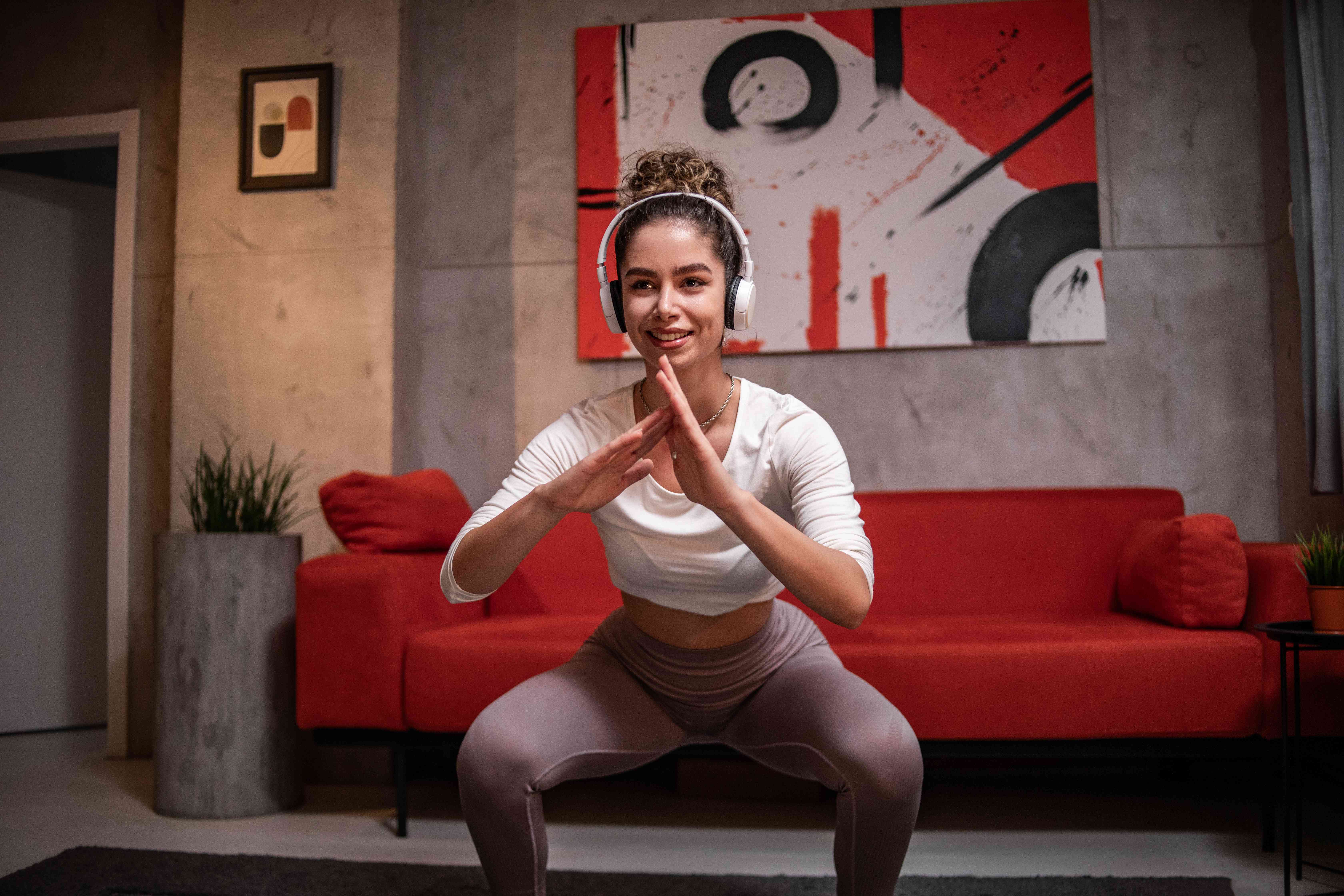Want to Get More Sleep? Study Suggests Brief Bursts of Nightly Squats Here's what you need to know about what the researchers found, including what types of exercises they tested

Breaking up your evening routine with regular, short bouts of low-intensity exercise could help you sleep longer at night, according to a recent study
- A new study suggests that doing short but regular bouts of resistance exercises at night may help people sleep longer.
- Participants who performed brief bursts of squats throughout the night slept for about 30 minutes longer, the researchers found.
- According to one expert, more research is necessary to understand how this type of exercise influences sleep.
At least one-quarter of American adults don’t get the recommended amount of sleep, leading to health problems like fatigue, an inability to focus, and, over time, the development of chronic conditions.
But a recent study out of the University of Otago in New Zealand suggests an easy solution: regular intervals of low-intensity resistance exercise in the evening. The research, published in BMJ Sport & Exercise Medicine, found a link between short bursts of nightly strength training and about half an hour of extra sleep.
“A lot of people don’t exercise, and a lot of people don’t sleep very well,” Justin Bickford, PT, DPT, a physical therapist at Memorial Hermann who wasn’t involved with the study, told Health. “But if they knew that it didn’t take a lot of exercise or a high intensity to improve the quality and duration of sleep, they’d probably be more likely to do it.”
The findings add more nuance to the long-debated question of how nightly exercise impacts sleep, with previous studies finding mixed results. Here’s what you need to know about the latest research.

Milan Markovic / Getty Images
What Type of Exercise Did the Study Examine?
Research suggests daytime exercise promotes better sleep, but the scientists wanted to know if performing short bouts of low-intensity exercise at night—often a person's longest period of prolonged sitting—had similar benefits.
“To date, no study appears to have investigated” that question, the authors noted.
To tackle the question, researchers recruited 28 people, primarily women, with an average age of 25.
Participants came into the lab for two sessions. “For the first session, they sat for four hours and just watched TV. In the other session, they broke that four hours of sitting every 30 minutes by performing three minutes of resistance exercises,” Jennifer Gale, lead study author and PhD candidate, told Health.
The researchers chose squats because the exercise recruits the largest muscles—your glutes, hamstrings, and quads—and you don’t need equipment or substantial space.
The participants went home, and the researchers monitored their sleep remotely. “We found that compared to when they sat all evening, the participants slept for about 27 minutes longer when they did the activity breaks,” Gale said.
They also found the sleep quality stayed the same, which Gale noted is a “good finding” because previous studies have found that exercising too late may disrupt sleep.
The extra sleep also moved most participants’ average sleep duration from below to within the recommended guidelines of at least seven hours per night.
For people who tend to be sedentary in the evening, short-duration exercises could be a manageable solution, Bickford said. “You don’t need to rely on sleep medications,” he said. “You don’t have to set up your room the perfect way and eliminate all distractions; you don’t have to have white noise.”
However, Raj Dasgupta, MD, a board-certified physician and medical reviewer for the National Council on Aging, pointed out that the study was small, with only 28 participants. The demographic was also limited to mostly younger females, suggesting the results may not apply to a broader population. “More research is needed to validate and confirm the results,” he told Health.
Does All Nighttime Exercise Benefit Sleep?
Previous research examining exercise’s effects on sleep has had varied results.
“Some studies say that exercising at night—especially intense workouts—can make it harder to fall asleep,” said Dasgupta, because this kind of movement raises your body temperature and stress levels.
One review from 2019, for example, found that vigorous nighttime exercise may reduce nightly sleep time, but only if it's performed within one hour before bedtime.
Another meta-analysis, published in 2022, suggested that of any type of evening movement, moderate-intensity exercise could have the potential to improve sleep quality and length. Low-intensity exercise, meanwhile, tends to shorten sleep latency, which is the amount of time that it takes to fall asleep.
While the newest study’s authors can’t say for sure whether short bouts of low-intensity exercise caused a longer night’s sleep, Gale said the findings indicate that “maybe we do need to revisit” sleep hygiene recommendations.
Until we have more research, Dasgupta has a suggestion: If you do decide to exercise at night, you're better off keeping it light to moderate.
This story originally appeared on: Health News - Author:Hannah Singleton


















